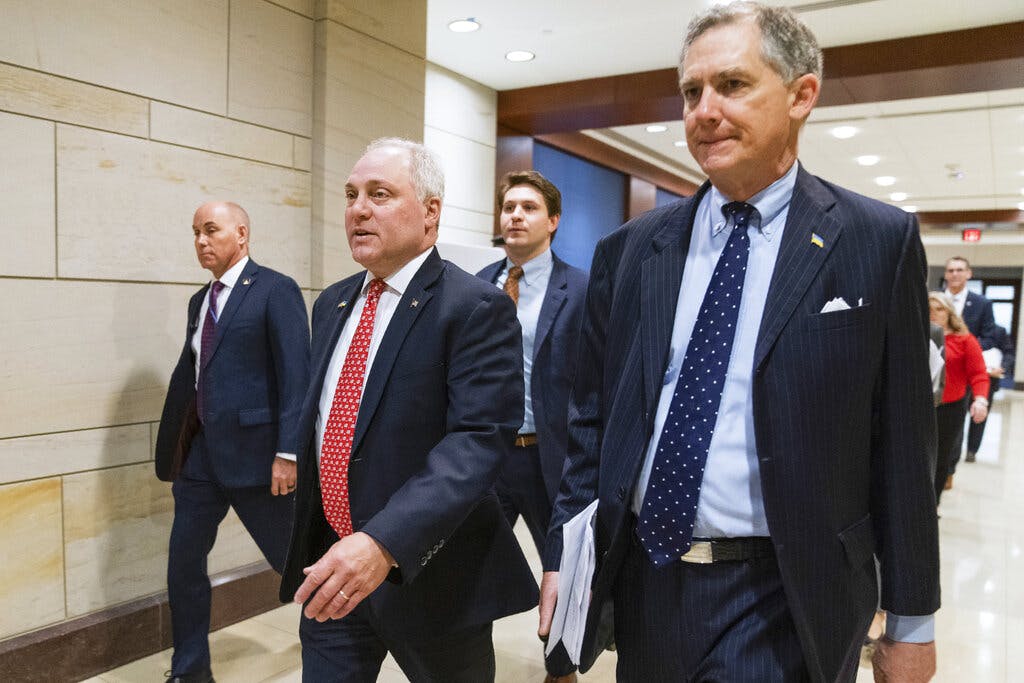Is Congress Losing Patience With the Fed?
The story that catches our attention is the prospect that the Congress has become so annoyed with the Fed’s incompetence, its failure to get atop the inflation crisis, that it’s opening up to monetary reform.

The big news in the latest appearances before Congress and the press of the chairman of the Federal Reserve is not, in our view, his protestations that our central bank is going to start raising interest rates, though that’s certainly news. The story that catches our attention is the prospect that the Congress has become so annoyed with the Fed’s incompetence, its failure to get atop the inflation crisis, that it’s opening up to monetary reform.
That’s what we take from the remarks Monday by Congressman French Hill. It was during his questioning of Chairman Powell on inflation, which has far outstripped the central bank’s target — and its predictions. “In Congress,” Mr. Hill said, “we’re here to really prevent that kind of inflation. And I recognize — and I’m happy to say — it’s both a fiscal responsibility and a monetary policy. And so, I’m proposing that we go back to price stability.”
Mr. Hill was referring to the so-called dual mandate that Congress delegated to the Fed during the inflation of the late 1970s, when it added to the central bank’s mandate of price stability a second mandate of full employment. The law that emerged back then is known as Humphrey-Hawkins, after Vice President Humphrey’s widow, Muriel, who succeeded her husband in the Senate, and Congressman Augustus Hawkins of California.
Even at the time, Humphrey Hawkins was controversial — and not just among conservatives. The Times, in an editorial, called it a “cruel hoax” that would “legislate wishful thinking, not a reduction in unemployment.” The Gray Lady noted that Humphrey Hawkins would proclaim a goal of “4 percent unemployment by 1983” (the rate at the time was 6.3 percent) but “by itself, would not create one job; it would merely legislate a good intention.”
Such fears turned out to be well-grounded. Humphrey Hawkins made hardly a dent in average unemployment. Between the enactment of the dual mandate and today, unemployment has averaged 6.2 percent. Joblessness was brought to its current below-average rates only by vast government spending, financed by the government borrowing from itself — that is, from the Federal Reserve — and using it in part to pay some Americans not to work.
Hence Mr. Hill’s comments in Congress. He plans, he told the Sun in a telephone call, to introduce as early as next week legislation to return the central bank’s authority to a single mandate — price stability. That would, in effect, overturn Humphrey Hawkins. The measure Mr. Hill intends to push has yet to be named, not to mention filed. Its fate would depend on, among other things, the Republicans winning control of the House in the elections in November.
We don’t want to make too much of this. We certainly grasp that earlier hopes — ours included — for monetary reform have been dashed. The last big attempt to pass the House, known as the Fed Oversight Modernization and Reform Act, was sent to the Senate by Speaker Paul Ryan in 2015. It was promptly pigeonholed in the Senate Banking Committee, then chaired by Senator Shelby of Alabama, and hasn’t been heard from since.
Yet we don’t want to make too little of the current moment, either. If the Republicans take the House in November, the stage would be set for Mr. Hill to pursue his single mandate measure in the next congress. It would return the marching orders of the Federal Reserve to something akin to what it was originally given at the start of the last century. If the House were again to step up on reform, a lot would then depend on the chamber where reforms go to die.
It’s a moment to note that Reform’s last tribune considered for the Fed, Judy Shelton, actually had the votes for confirmation. She was turned down only because Senator Grassley tested positive for Covid and, at age 86, had, for the first time, to miss a vote. A Democratic Senate just forced Sarah Bloom Raskin to withdraw for a governorship because it feared she’d plump for a third mandate, climate change. So we wish Congressman French Hill well. The country needs him.

